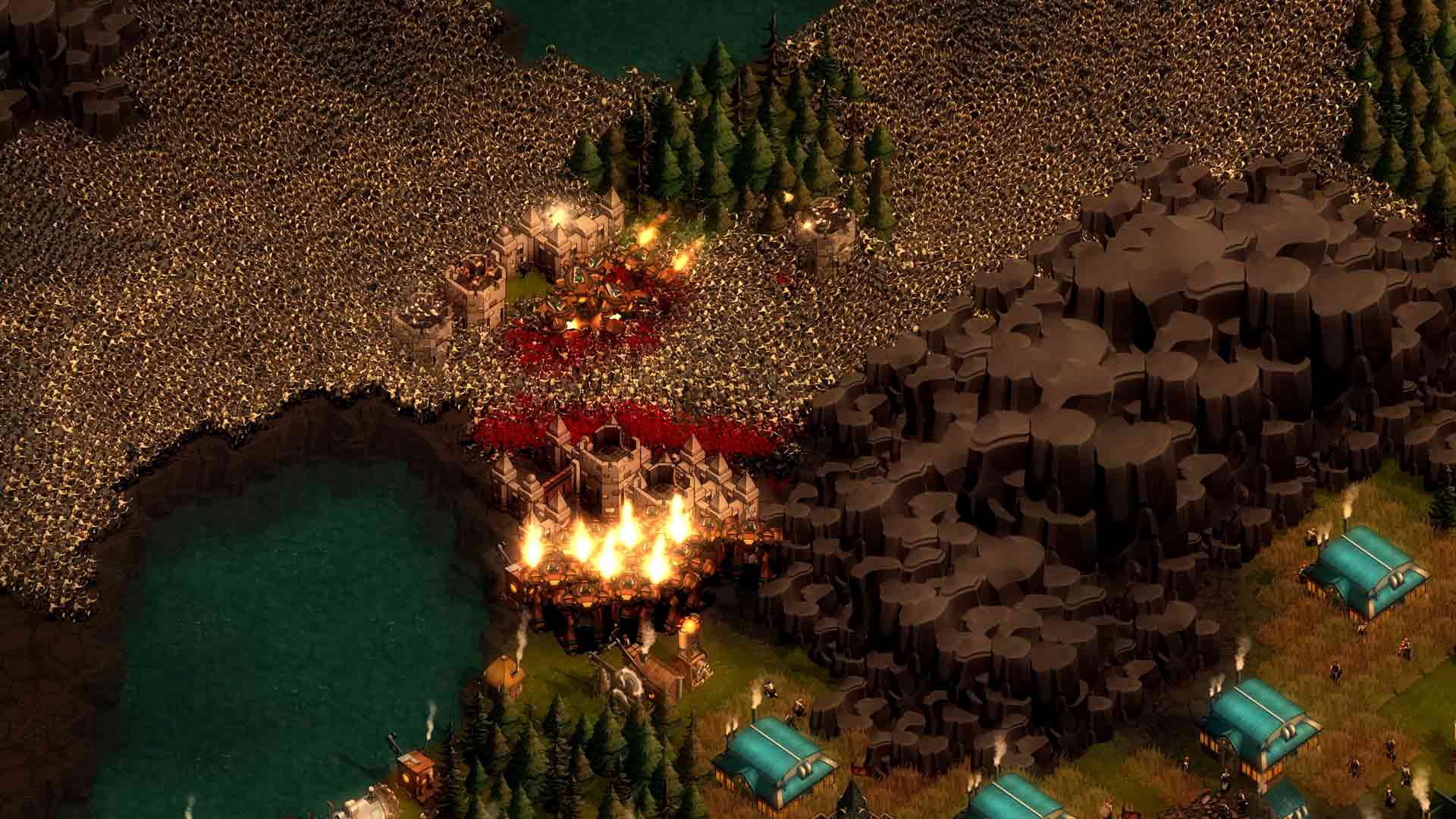
Death comes as a sudden, unpleasant surprise in They Are Billions. It's a real-time strategy game strongly reminiscent of late-'90s classics like Age of Empires or StarCraft, but rather than a symmetrical battle against other civilizations, you struggle against a horde of mindless zombies. The slightest breach in your defenses can mean that your base is infected, causing an explosive—and usually game-ending—surge as the zombies convert your helpless citizen residents into more zombies. A single shuffling zombie that sneaks past a poorly placed wall or into a new expansion can lead to a snowball that rolls over your entire base before you know it.
Director Jesús Arribas took the time to speak with me about what led Numantian Games to make a game about a zombie plague, as well as how their own viral growth ended up getting out of hand.
Questions and answers have been edited for brevity and clarity.
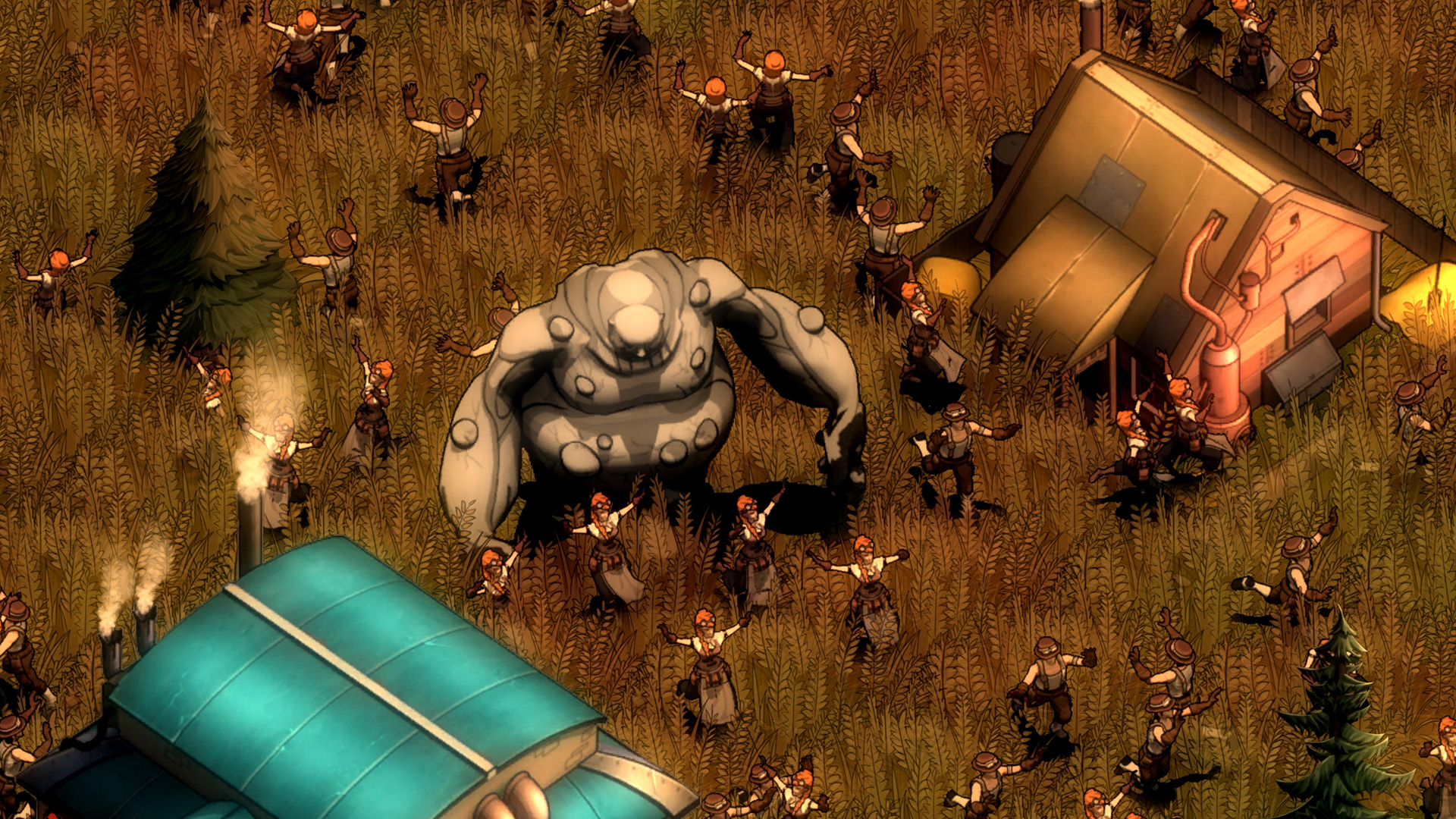
PC Gamer: They Are Billions is quite a departure from Numantian's previous game, Lords of Xulima. That game was a very traditional role-playing game in the vein of Might & Magic and Wizardry. How did Numantian Games go from straight-laced fantasy to this offbeat survival strategy game?
Jesús Arribas: They are very different themes and genre, but if you play both, you can see the same author’s touch, like the same painter who draws two different scenes.
Most developers tend to think that they must take care of the players, that they need everything easy and straightforward. But we don't.
Jesús Arribas
Real-time strategy games have followed a similar trajectory as RPGs. The classic titles were very challenging and hard to master. You had the freedom to play the missions the way you liked. You were free to lose if you made stupid decisions. But at the same time, when you won, it was very rewarding. We have always been fans of RPGs and strategy games. We tried bringing back that feel of the old-school RPGs to the present with Lords of Xulima.
We have the same goal with the RTS genre and They Are Billions. You have to manage the economy and the resources, expand the colony, build an army, attack your enemies to clear areas, reach new resource sources, and of course, defend your base from the infected hordes. And this is just the Survival Mode. We are working on the Campaign which is a bit more similar to classic RTS, with a big story, tactical missions, and much more content.
Keep up to date with the most important stories and the best deals, as picked by the PC Gamer team.
Losing in They Are Billions happens very fast. Any failure means zombies convert your built-up resources into more zombies very quickly—and you even warn players about this threat. Why does They Are Billions have such a sharp death spiral into failure and game over?
JA: In this game, the zombies are not just an excuse to have an enemy to fight—they are the central pillar of They Are Billions. This is not about killing enemies. This is about combating the infection—the same infection that destroyed the world and is the main threat to the new survivors. You could have a massive colony and suddenly find it in ruins because of a single infected breaking through. Fear and danger are constant.
The infection is the real threat to the survival of the colony. We know many players can get frustrated because of this. There is no other game like this. So, when a player loses their first colony because of a single decrepit zombie, they can hardly believe it. It is part of the fun. Nevertheless, a full game can last 2-3 hours if you survive all the way to the end. It is a game about surviving and improving your survival skills, not winning. If your score gets higher every time you play, then you are doing great.
Most developers tend to think that they must take care of the players, that they need everything easy and straightforward. But we don't. Players are much smarter than we give them credit for. When they are challenged with a game like this, where there is no hand-holding at all and even losing is fun, they actually love the experience.
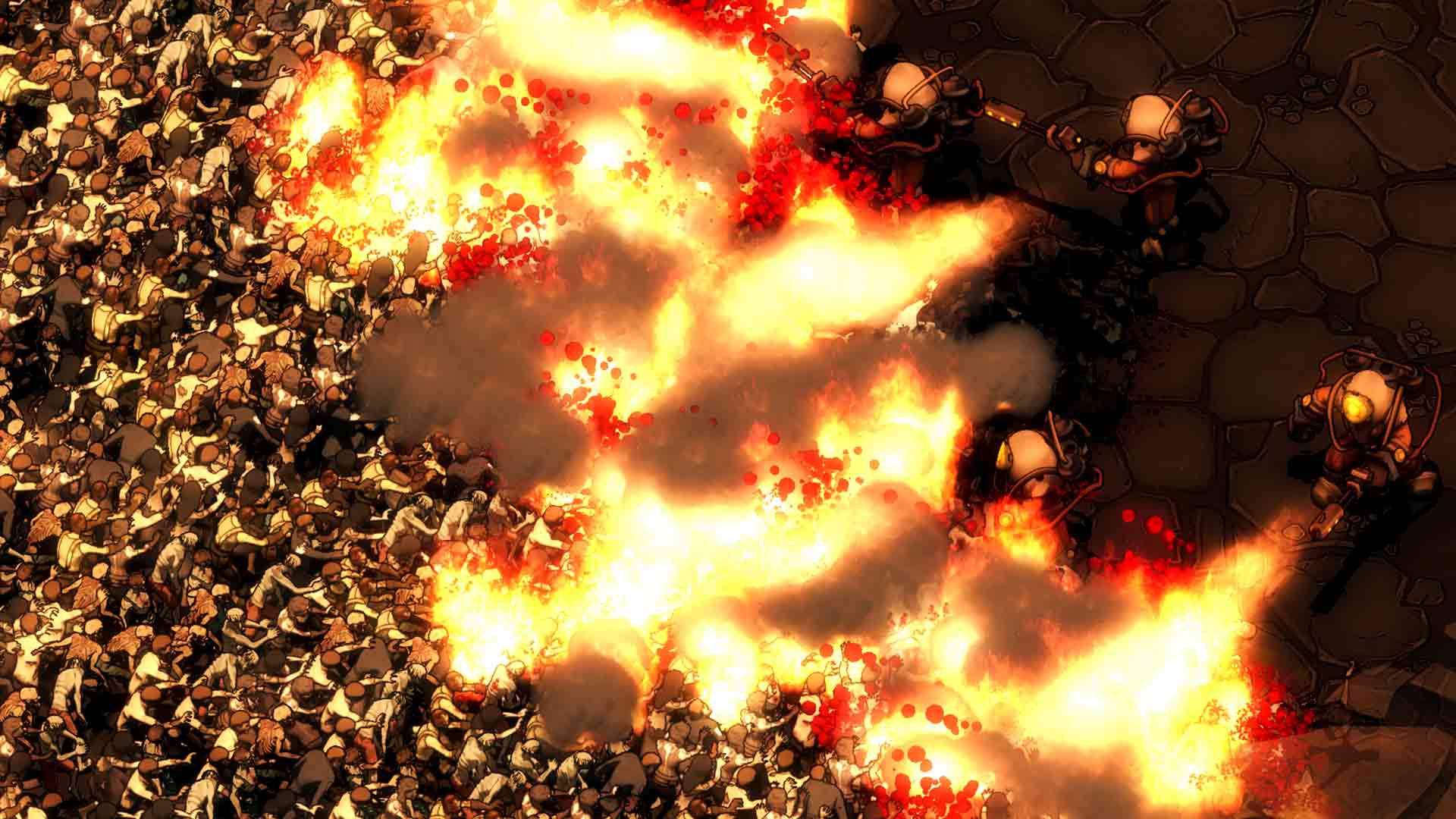
Shooting zombies can fit into all sorts of settings, from traditional high fantasy to far-future science fiction. Why steampunk? What about Victorian aesthetics made them feel like a good fit for a survival game?
JA: From a development point of view, we thought that it would be super interesting to mix a steampunk society with their low technology with a zombie apocalypse. Watching the Titan, a steam machine driven by an educated gentleman with Victorian manners, destroying zombies is something worth experiencing.
Because it is set in the future, the 22nd century, one may question, "What has happened to the civilization and the modern world? Why has technology gone backward to a 19th century level? Where did the zombies come from?" You have to play the campaign to find the answers.
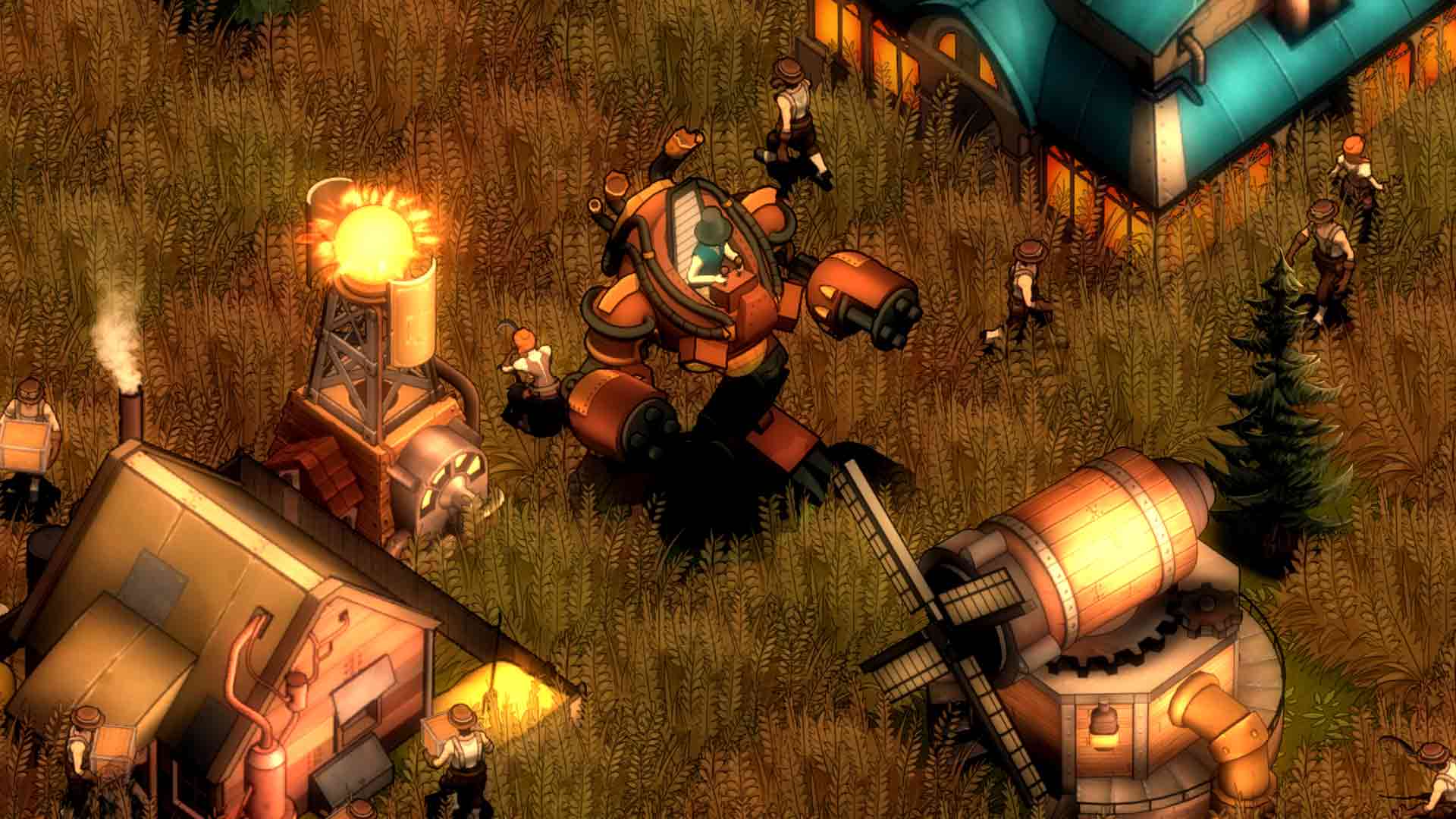
A significant departure from Numantian Games' previous work is the shift from crowdfunding on Kickstarter to launching straight to Steam Early Access. Why didn't you head to Kickstarter a second time?
We had to release the game about six months earlier than what we would have liked. Fortunately, the launch on Early Access has been very successful.
Jesús Arribas
JA: Instead of launching a Kickstarter, which requires months of work and preparation, we decided to do something softer and just to launch a campaign directly from our official Numantian Games website. We thought that it would be a great idea to let the backers play the Survival mode to collect feedback and test the game, [so] we then added Steam beta keys to the rewards and released the [crowdfunding] campaign on Halloween.
And what happened? People started to purchase the game, play it, and upload videos to YouTube. The game went viral very fast. So fast in fact, that we ran out of Steam beta keys in one week for the lower tier, then in a few days the next tier, and so on...
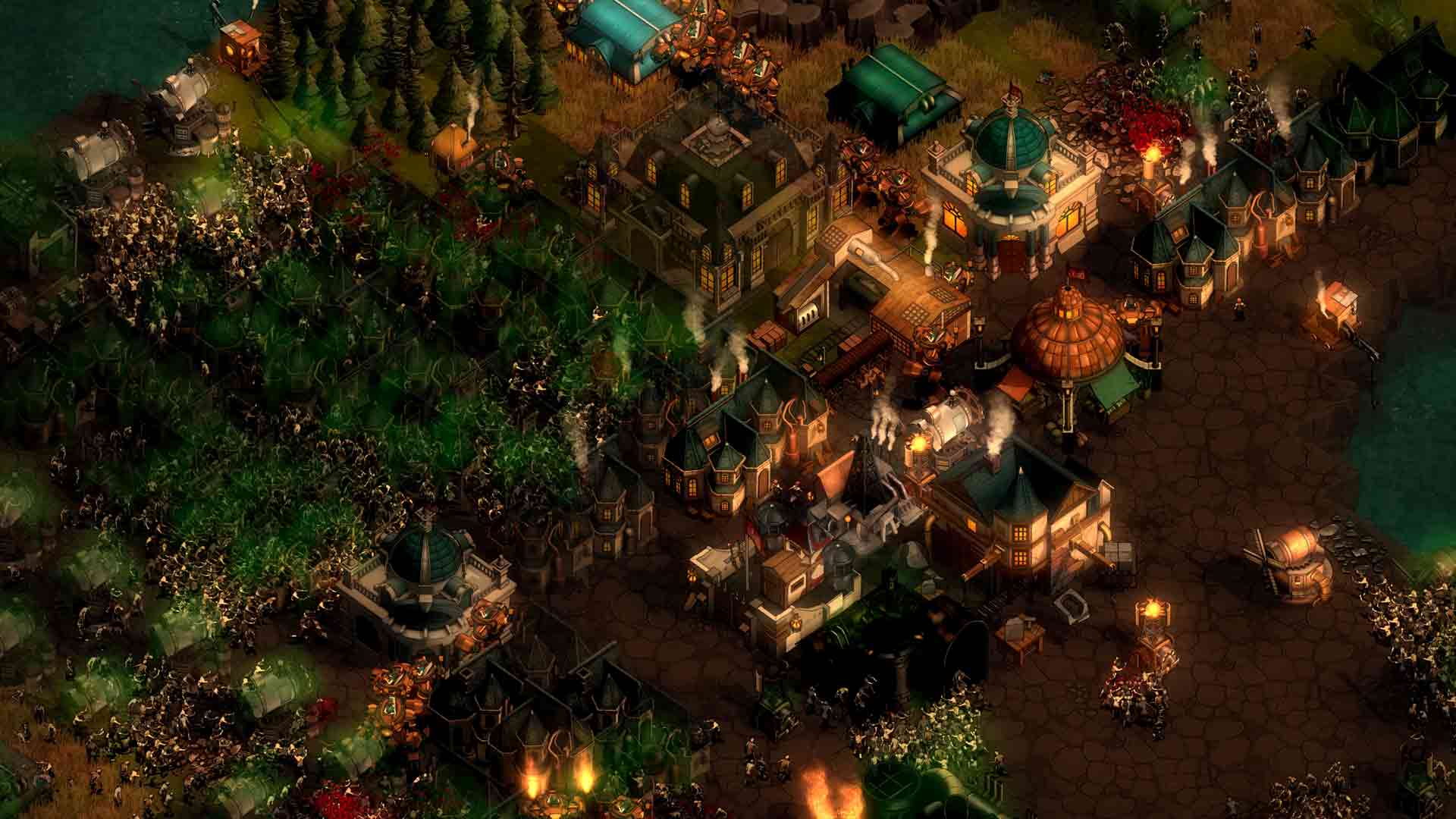
In two weeks, we ran out of beta keys—we originally had 10,000. We asked Valve for more beta keys, but we were unable to acquire any more keys until we released the game on Steam. We ended up in a situation where big YouTubers were playing the game, but people were unable to purchase and play it as well.
We made the decision to release the game with just the Survival Mode on Steam Early Access. Then we could work on the main game mode, Campaign mode, during the Early Access phase. We had to release the game about six months earlier than what we would have liked. Fortunately, the launch on Early Access has been very successful. We are still on the top seller list since the launch, the comments and reviews are very positive.
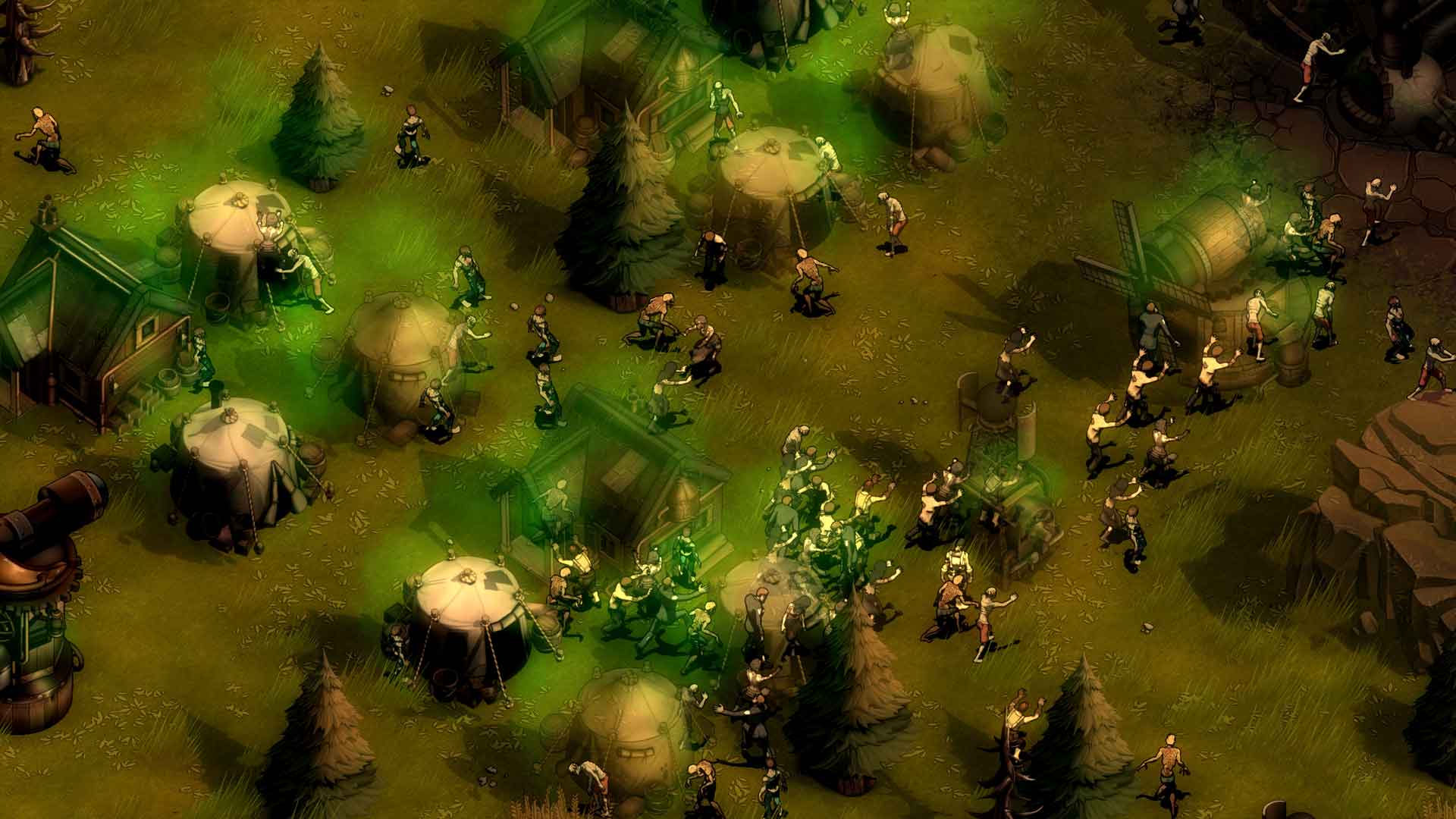
Where do you plan to go from here? What's your first priority to add (or fix) in the near future? What are your goals before leaving Early Access? And what are your plans once They Are Billions reaches 1.0?
JA: We are working in parallel on two different fronts. First, solving bugs and fixing problems and hardware compatibility issues. And second, making the game multi-language. Our goal is to have the game in eight languages in just a few weeks. The game is selling well all over the world, so we want as many players as possible to enjoy it in their own language.
After that, we are working on more features for the Survival mode, new buildings and zombies. [Another upcoming new mode is] Challenge of the Week. In that challenge, all the players can compete for getting the highest score playing the same survival map. We think it will be very funny as even the developers will participate in the challenge every week.
Finally, we continue working on the campaign. Thanks to the success of the game we can invest more in creating a memorable and epic campaign. Stay tuned!
They Are Billions is currently available on Steam in Early Access.

